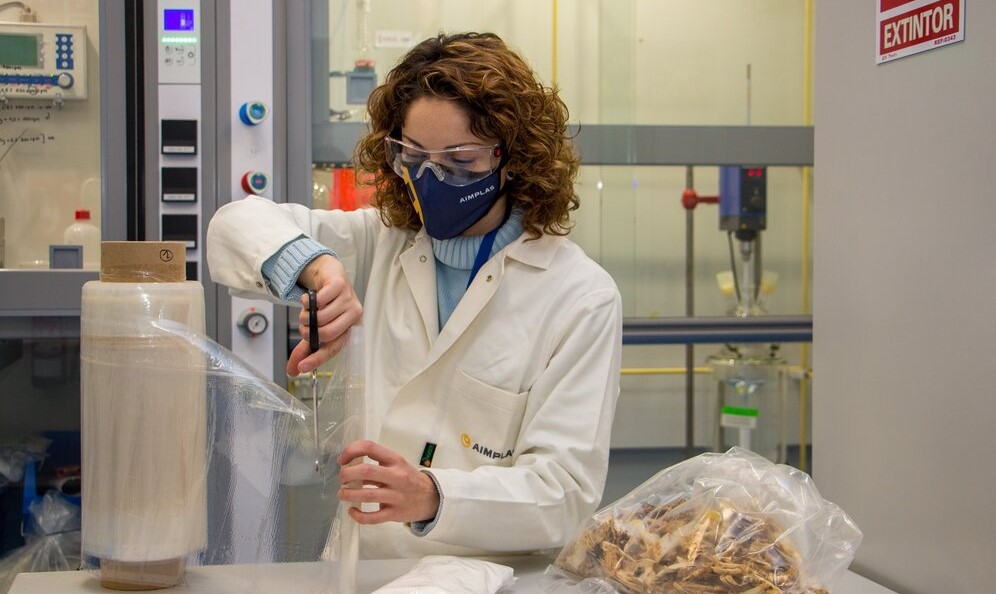
The goal of the European Dafia project is to provide the food packaging and automotive industries with sustainable options through the development of biopolymers, flame-retardant additives and barrier packaging.
Results have included flame retardants that provide an alternative to halogenated models, sustainable barrier packaging and edible coatings that extend the shelf-life of food, and chemical substances that can be used to produce new plastics from renewable resources.
For the past four years, the project’s 15 members have worked to upcycle waste that appears to have no added value, including municipal solid waste (household rubbish) and ‘rest’ raw materials from the fishing industry.
Waste from the fishing industry was used to obtain alternatives to fossil-based EVOH that have oxygen barrier properties. The fish-gelatine-based formula can be incorporated into food packaging film or used to actually coat food in the form of an edible coating that extends its shelf-life.
Aimplas said this serves as a perfect example of circularity, in that fish waste is reincorporated into the production chain to package food, so preventing the generation of waste by using it as a new resource.
In the case of municipal solid waste, the use of innovative fermentation processes has made it possible to extract building blocks from sugars (carbon source) that can be used to synthesise biopolymers such as bio-based polyamides. These materials come from renewable sources and also have applications in the automotive industry.
The Dafia project is in line with circular economy criteria because it involves obtaining new resources from marine and municipal waste that respect the environment and human health, Aimplas said.
It is funded by the EU Horizon 2020 research and innovation programme under grant agreement number 720770.






